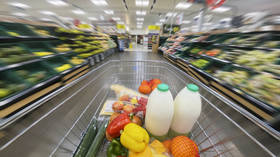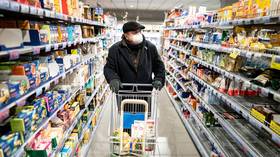World food prices edging to all-time high

A new report by the Food and Agriculture Organization (FAO) of the United Nations showed that global food prices soared last month, led by a jump in vegetable oils and dairy. The index of prices, up by 1.1%, is edging closer to 2011’s all-time high, the research showed.
The fallout from an energy crisis, reduced export availability, and other supply-side constraints, especially labor shortages and unfavorable weather, have pushed prices higher, the FAO said.
The vegetable oils index surged 4.2% month-on-month in January to reach record levels. Quotations for all major oils rose, supported in part by rising crude oil prices. The dairy price index also increased 2.4%, its fifth consecutive monthly rise, with the steepest gains registered by skim milk powder and butter. The cereal price index was up just 0.1%, with maize posting a 3.8% gain on the month, according to the FAO.
Meat prices edged up in January, while the sugar price index decreased 3.1% from the previous month due partly to favorable production prospects in majorexporters India and Thailand, the report said.
Meanwhile, world wheat prices dropped 3.1% on the back of large harvests in Australia and Argentina. “For 2022, global wheat plantings are expected to expand, buoyed by mostly conducive weather conditions in the northern hemisphere, although high input costs could deter a larger expansion,” the FAO said.
The UN body has raised its projection of global cereal production in 2021 to 2.793 billion tons from a previous estimate of 2.791 billion tons.
Higher food prices have contributed to a broader surge in inflation as economies recover from the Covid-19 crisis. The FAO has warned that higher costs are putting poorer populations at risk in countries reliant on imports.
For more stories on economy & finance visit RT's business section













